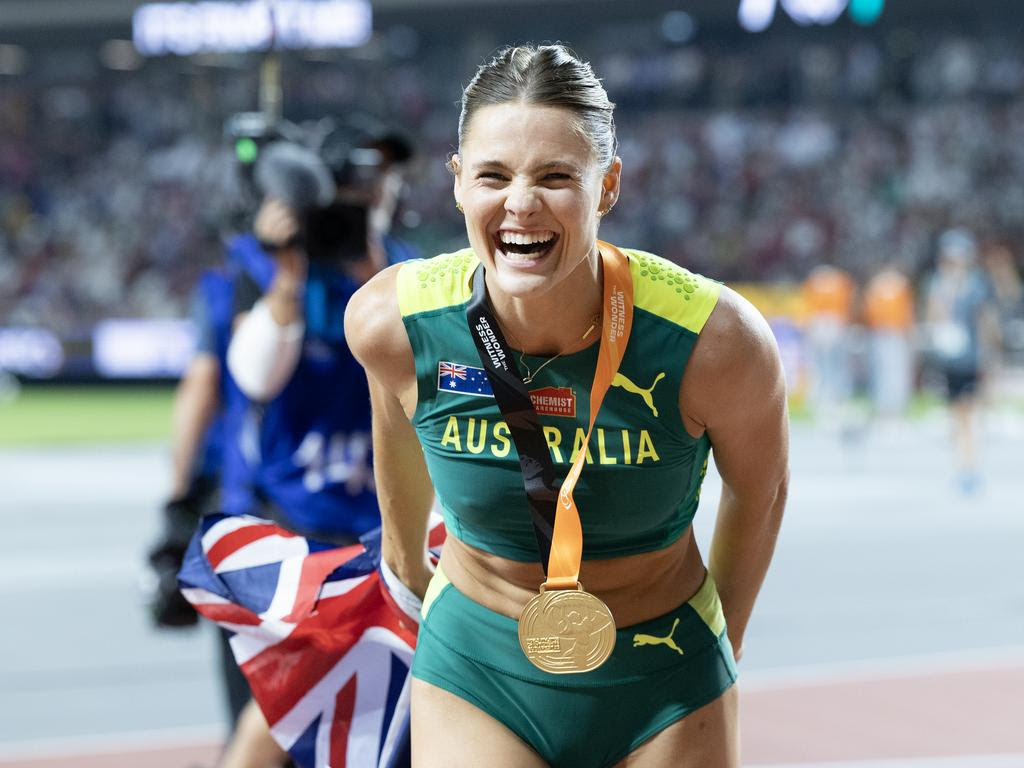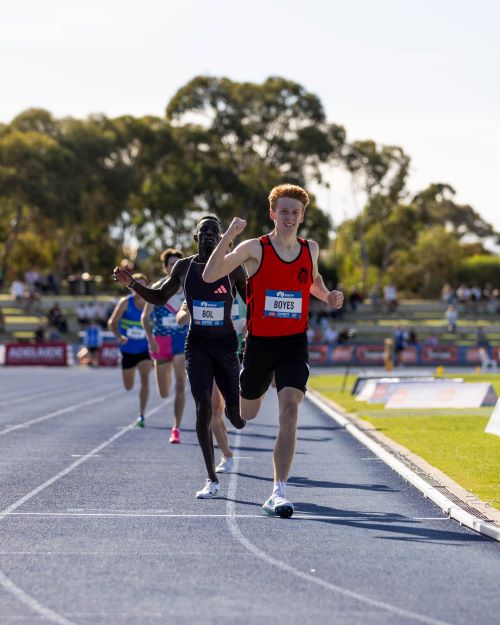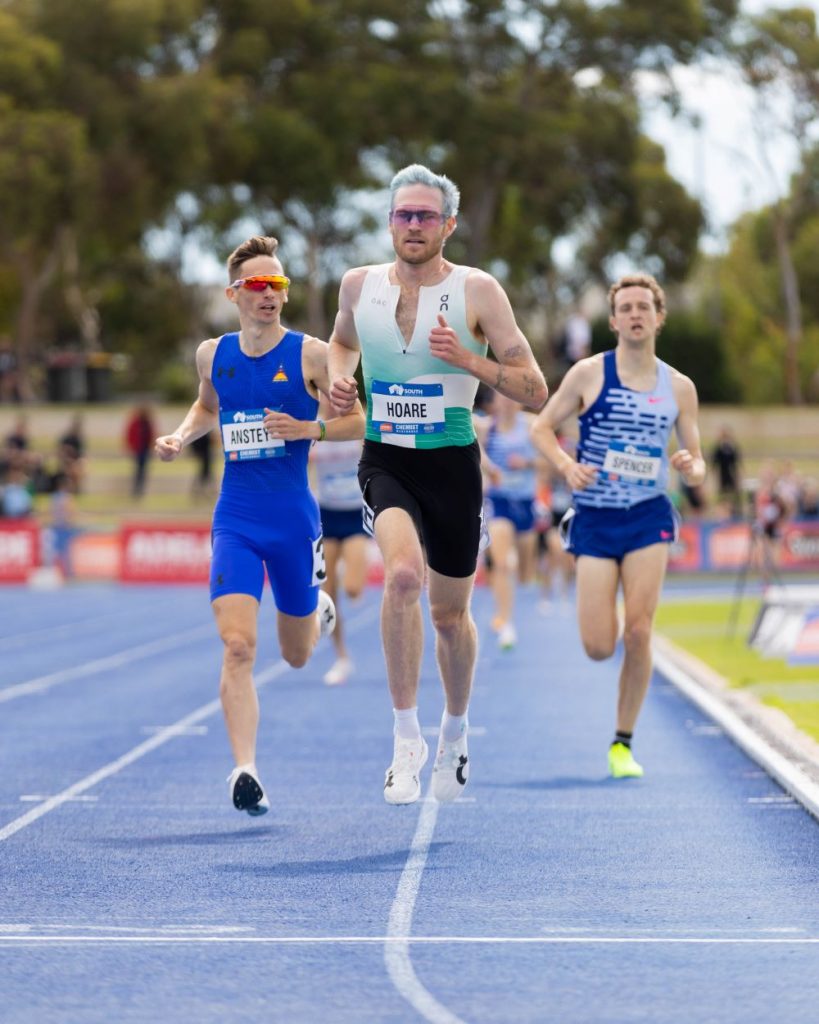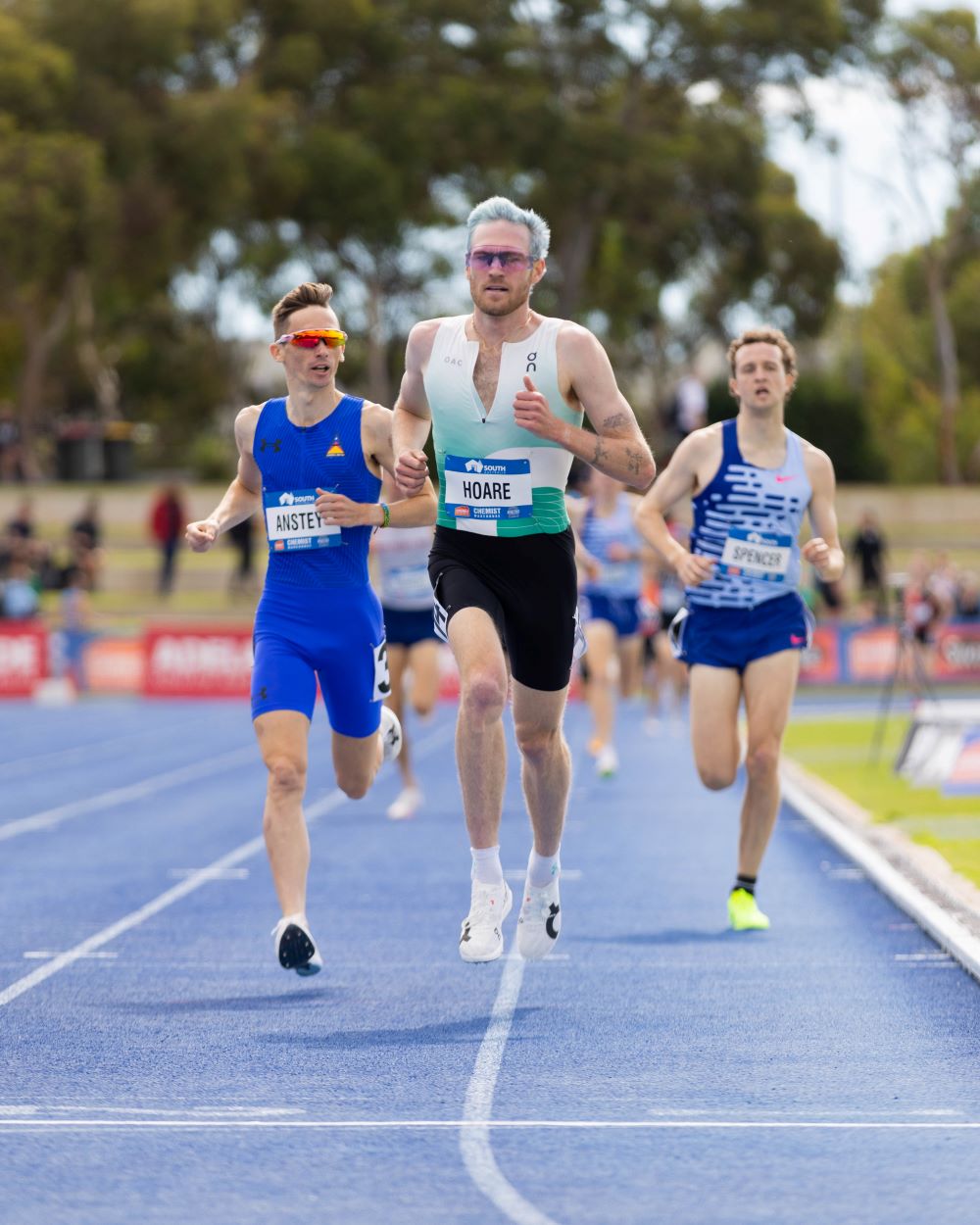The men’s 1500 metres was one of the two most anticipated races at the just-concluded national championships in Adelaide (the other, the women’s 800).
Adam Spencer won ahead of, in order, Ollie Hoare, Jesse Hunt, Stewart McSweyn and Cam Myers. Spencer had already achieved the automatic qualifying standard for the Paris24 Olympic Games, doing so within the qualifying period.
When the first tranche of nominations to the Australian Olympic Committee was announced at the conclusion of the senior events, Spencer’s name was not among the 14 nominees.
Nina Kennedy was co-gold medallist alongside Katie Moon of the USA in the women’s pole vault at last year’s world championships in Budapest. Kurtis Marschall was equal-bronze medallist in the men’s event. Mackenzie Little was bronze medallist in the women’s javelin.
 When the 14 initial nominations were announced, neither Kennedy’s, nor Marschall’s, nor Little’s name was among them.
When the 14 initial nominations were announced, neither Kennedy’s, nor Marschall’s, nor Little’s name was among them.
Peter Bol was beaten in the men’s 800 by Luke Boyes, who has not qualified (yet). Bol has the qualifier and was listed among the 14. Linden Hall – also a qualifier – was beaten into third place behind Jess Hull in the women’s 1500 by non-qualifier Georgia Griffith. Hull was the only one of the three nominated.
 There were, it turned out, reasons within the criteria for all these outcomes which we will get to soon enough. But for those looking on, the optics were terrible. How is it that the winner of the most competitive men’s race in the championships, which along with the women’s 800 had generated most of the pre-championships’ discussion, is not named at the first available opportunity?
There were, it turned out, reasons within the criteria for all these outcomes which we will get to soon enough. But for those looking on, the optics were terrible. How is it that the winner of the most competitive men’s race in the championships, which along with the women’s 800 had generated most of the pre-championships’ discussion, is not named at the first available opportunity?
Or three of our unprecedented tally of six medallists at last year’s world championships? Or one qualified athlete beaten by a non-qualifier, but not another?
Or, in an Olympic year, when attention is focused on the national championships in all Olympic sports, that it makes sense to limit your first team announcement to 14 athletes. The person in the street is entitled to inquire: “Is that all you’ve got?” And, later, to ask of the 46 others added to a team expected to number around 60: “Who are these also-rans?”

Alright, Spencer is almost certain to wind up in the team, as are Kennedy, Marschall and Little, Griffith and Hall and Luke Boyes. But it won’t be when the second tranche is announced. That’s for marathons only and will happen early next month. No, we won’t consider Spencer and our three Budapest medallists again until the third and final lot of nominations go forward in the first few days of July.
A shambles? Not quite. Any lasting consequences? Probably not. But as one veteran follower of the sport messaged when this became apparent, “shoots ourselves in foot. Just puts athletes on edge unnecessarily.”
Indeed it does. And, after insisting athletes run the event(s) at the nationals in which they were chasing selection, does leaving places open in highly competitive events throw everything wide open again. Assumedly it does.
Anyway, after saying that all these decisions did come under the policy, it behoves us to explain how and why.
Firstly, the policy set out a list of obligations athletes must fulfil to be considered for immediate nomination to the Olympic team. The one which tripped up Spencer and the medallists was the requirement to compete at the national championships and at least one other meeting in the domestic series defined as the Zatopek meeting, the Adelaide, Melbourne, Canberra and Sydney meetings and the Albie Thomas mile meeting (a puzzler, but presumably because the national mile titles were contested there).

The four athletes concerned did not tick this box.
OK, now the difference between Bol and Hall. Bol did tick the ‘at least one other meeting’ box due to his participation in the Albie Thomas meeting. Although he was then beaten by the unqualified – by 0.03 seconds! – Boyes, the policy gave the selectors the power to nominate anyone who finished either first or second and had achieved the automatic qualifier.
If you’re still keeping up, you can see that the reason Hall cannot be nominated yet is that she finished third. Griffith can’t be because she is yet to qualify though that may change when she runs in the Xiamen DL this very weekend (20 April).
And while even those of us who like to think we keep up with developments may not have known all these implications of the Olympic nomination policy last weekend in Adelaide we are certainly aware of them now. Further, the writer is informed that all of the athletes involved also knew they would not be in the first names announced and has no reason to doubt it.
But it seems an unnecessarily inflexible approach which is poorly aligned with the otherwise inclusive trajectory Australia’s selection policies have followed over the last 12 years and longer. Sure all these athletes may – probably will – wind up in the team. As will every other athlete who reaches the qualifying standard or is offered a spot based on their world ranking.
For the moment, however, we are left to stare at a bleeding hole in our foot at the very moment our sport should be basking in the spotlight.





